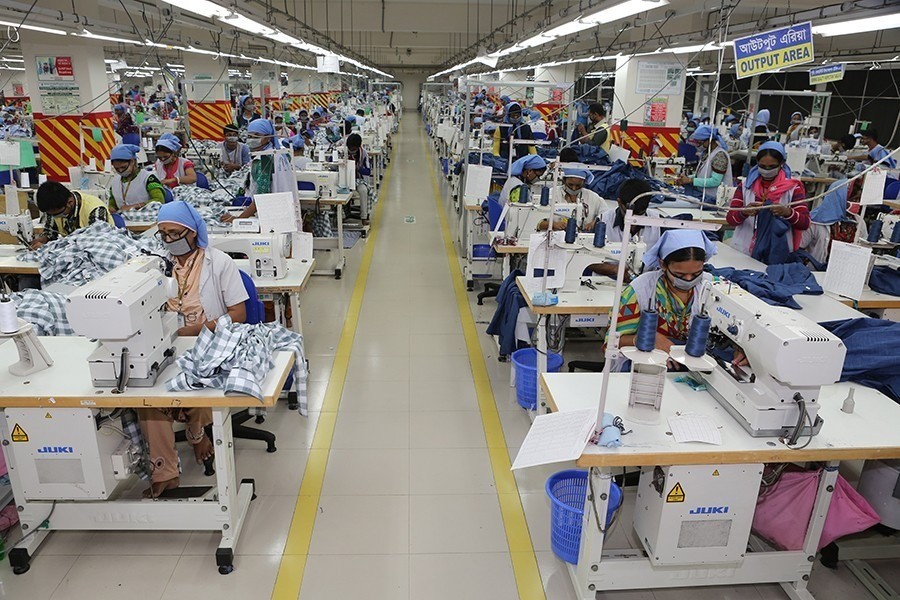They also pressed for fixing Tk 25,000 as minimum monthly wage and giving 60 per cent dearness allowance - amid the present high cost of living due to price hike of essentials.
The existing minimum monthly wage for entry-level garment workers is Tk 8,000 - fixed in 2018.
They made the demands at a demonstration in front of the Bangladesh Garment Manufacturers and Exporters Association (BGMEA) headquarters at Uttara in the city, according to a statement.
They also handed over a memorandum to the BGMEA officials after the demonstration.
Garment Shramik Odhikar Andolan coordinator Shahidul Islam Sabuj, its member Raju Ahmed, and labour leaders Mahbubur Rahman Ismail, Taslima Akhter, Masud Reza, Shabnam Hafiz and Biplob Bhattachariya, among others, spoke there.
The leaders said the prices of daily essentials have skyrocketed in the country, and it has been difficult for the workers to manage livelihood with Tk 8,000 per month, added the statement.
Since 2018, the price of rice has increased by 17 per cent, flour 72 per cent, bottled edible oil 78 per cent, salt 40 per cent, and egg 50 per cent.
Citing an example, they said the workers have reduced consumption of edible oil due to its high price, as they have to spend Tk 1,000 for five litres of oil from their monthly income of Tk 8,000.
Export data showed that RMG export earnings witnessed over 3.0 per cent growth, although overall receipts fall 7.85 per cent in October 2022 year-on-year.
They said the Russia-Ukraine war has put pressure on the economy, but the country's RMG sector sustained its growth.
In such a situation, if the workers' monthly wages are not increased to enhance their purchasing capacity, both the workers and the industry would suffer.
They alleged that the entrepreneurs do not want to raise labour cost, although they purchase other goods at high rates.


